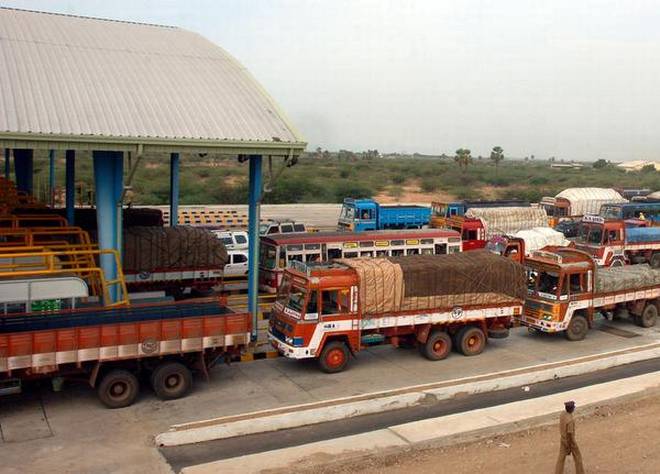Under the Goods and Service Tax (GST) Regime, the GST council on its 24th meeting decided to implement e-way bill on a voluntary basis from January 16 and compulsorily from February 1. But due to tech glitches, government has decided to extend the trial phase, both for inter and intra-state and make it compulsory from a date to be announced soon.
What is an E-Way Bill?
E-way bill is an electronically generated document required to be generated online for transportation of goods of more than Rs.50,000/-, whether inter-state or intra-state. It replaces the way bill used earlier under the VAT regime as physical document for the movement of goods.
Who is responsible to generate E-way bill?
1. If you are a registered person whether consignor or consignee, you would have to generate the e-way bill in form GST EWB 01 electronically on the common portal after furnishing information in Part B of form GST EWB 01.
2. If the registered person hands over goods to the transporter without generating e-way bill, it would become responsibility of the transporter to do so.
3. If you are not registered under GST, then you would be required to generate the e-way bill yourself or through the transporter who is transporting goods through the same form GST EWB 01.
4. Whereas, if you are unregistered and supplies goods to a registered person, and the same is known to both the parties at the time of commencement of goods, then it would be deemed as movement of goods by the registered person and the receiver will be required to ensure that all the compliances are met as applicable to the supplier.

Note: Part B of e way bill is not required to be filed where the distance between the consigner or consignee and the transporter is less than 10 km and the transport is within the same state.
Documents/Details required to generate E-way bill
a) Invoice/Bill of Supply/Challan related to the consignment of goods.
b) If goods are transported by road, then transporter id or vehicle number is required.
c) If goods are transported by rail, air or ship, then transporter id, transport documentation number and document date is required.
When is e-way bill not required to be generated
E-way bill is not required to be generated in following cases:
a) The mode of transport is non-motor vehicle.
b) Goods transported from port, airport, air cargo complex or land customs station to inland container deport (ICD) or Container freight station (CFS) for clearance by customs.
c) Transportation of goods specified as exempted from time to time.
Validity of E-way bill
E-way bill is valid for a period based on distance travelled by goods. Validity is calculated from the date and time of generation of e-way bill-
| Distance | Validity of E-Way bill |
| Less than 100 km. | 1 day |
| For any additional 100 km. or part thereof | Additional 1 day |
In circumstances of exceptional nature, where the goods cannot be transported within the validity period of the e-way bill, the transporter may generate another e-way bill after updating the details in part B of Form GST EWB 01.
Transporter Responsibilities
a) Transporter will be required to generate e-way bill based on invoice or delivery challan, if consigner or consignee has not generated the e-way bill and the value of consignment is more than Rs. 50,000/-.
b) Any transporter transferring goods from one conveyance to another in the course of transit shall before such transfer and further movement of goods, update the detail of the conveyance in the e-way bill on GST portal.
c) In case multiple consignments are transported in one conveyance, transporter shall indicate the serial number of each individually generated e-way bill in respect of each such consignment and a consolidated e-way bill in form GST EWB 02 may be generated by him on GST portal before movement of goods.
FORM GST EWB-02
(See Rule 138)
Consolidated E-Way bill
Number of E-Way Bills
E-Way Bill Number
Benefits of E-way Bill
1. It is believed that e-way bill will eventually boost GST compliance as through this technology government will get to know who hasn’t filed a GST return after moving goods from one place to another. They want to make e-way filing a habit to be adopted by every concerned person with movement of goods.Through this every trader will have account for purchase and sale which will help make a more credible GDP figure.
2. It is also believed that e-way bill system will result in ‘no’ inspector-raj as the vehicles carrying goods would be stopped only once en route to check if goods being transported are accompanied by e-way bill or not. Also, once it is stopped it will not face any further inspections along the rest of its route, even if it is traversed multiple states. This will significantly speed up the time for transport operators.
3. The number of exemptions associated with the requirement of e-way bill is also extensive, including about 50% of the CPI (Consumer Price Index) basket of goods. The states who had already implemented way bills similar to e-way bills under VAT regime saw a relevant jump in their revenue after implementing it.
We offer e-way bill generation services to our clients along with accounting outsourcing services . The team manages their accounts as well as their e-way bills to help them work smoothly and efficiently.






